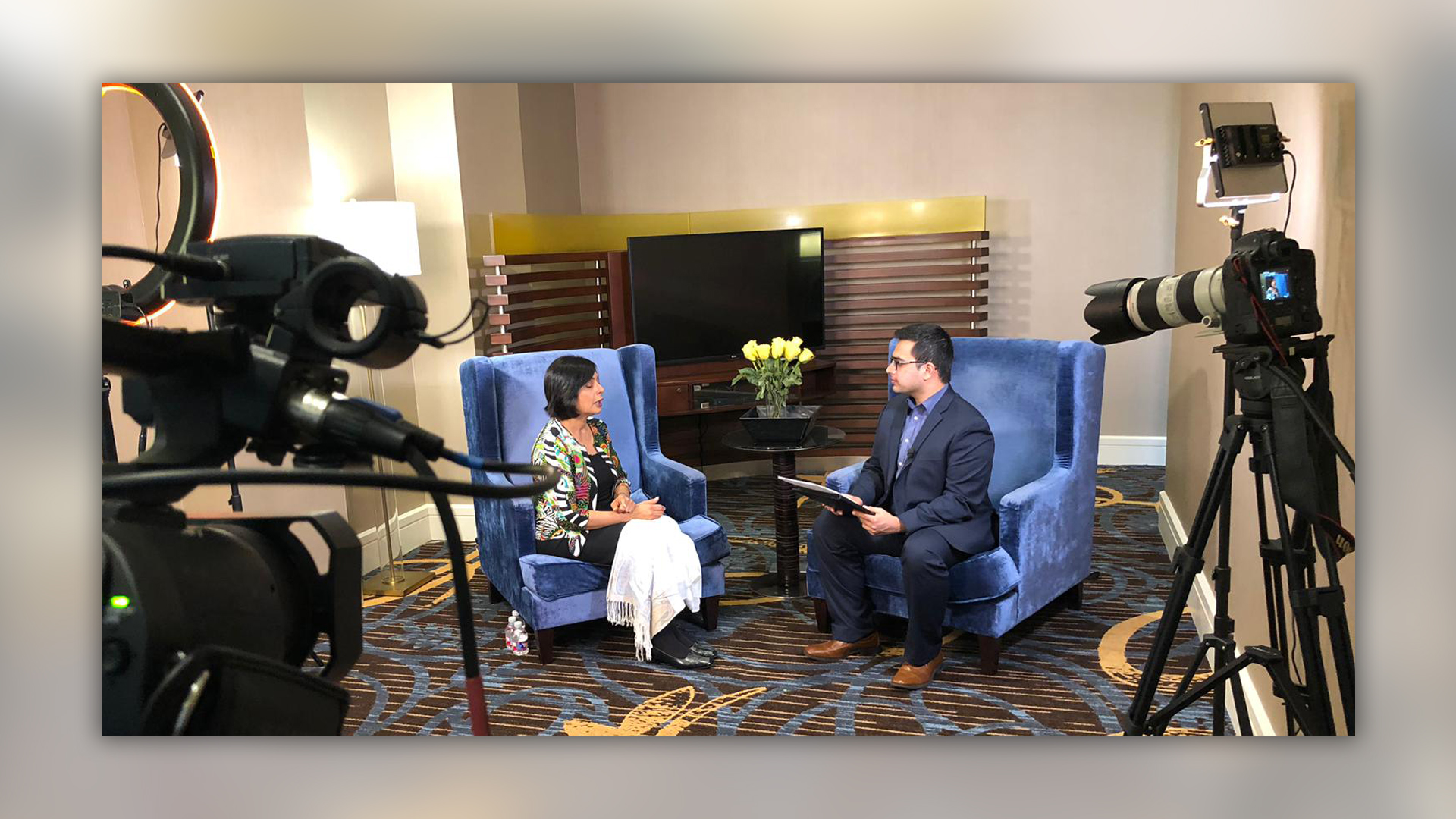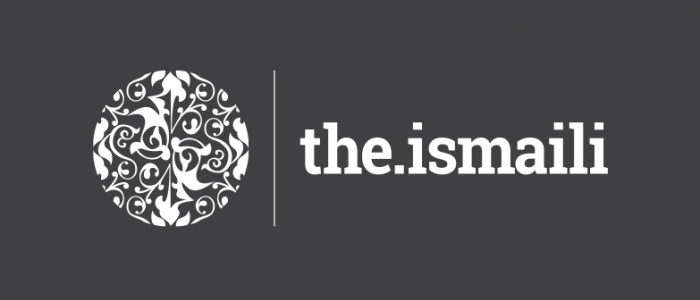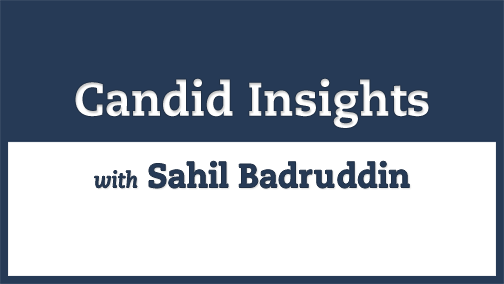Shainool Jiwa on Lessons from the Fatimid Empire for Today
EDITORS’ NOTE: Dr. Shainool Jiwa — Head of Constituency Studies at the Institute of Ismaili Studies and a specialist on the Fatimid Empire — discusses her insights on the history of the Fatimid Empire, what we can learn from the Fatimids: the role of the intellect and discussions/debates, emotionally driven and narrative-based approaches as part of developing one’s faith, and her personal journey and vision for the Future. Published for The.Ismaili.
Interview Questions
Part 1: The history of the Fatimid Empire
Time Index: 0:20
1. I want to talk a little bit about the Fatimid Empire, generally as an empire. We know the Fatimid Empire was intellectually, administratively, socially, it was an exemplar, just as other empires were, of course. I’m curious about what was unique about them and different from other empires.
Time Index: 5:46
2. On the other hand, what in your opinion, did the Fatimids lack that they could’ve learned from other empires?
Part 2: What we can learn from the Fatimids: the role of the intellect and discussions/debates
Time Index: 10:34
3. In speaking of the Fatimid empire, I believe the Aga Khan said we can learn from them.
Specifically, he says: “The Fatimid epoch in our history is a significant precursor of attitudes that are appropriate for the 20th and 21st century. It was a time in which intellect played a major role in society … And therefore, there are many lessons that come to us from our history and we should learn from and then we should carry forward in the centuries ahead.”
Speaking specifically about the role of the intellect and the notion of intellectual faith, can you highlight what attitudes from the Fatimid Empire, to which the Aga Khan is referring to, that we might be lacking today and perhaps can adopt?
Time Index: 17:30
4. Speaking about the intellect and the role of the intellect, in the past, the Fatimid Empire and what would be called the Jamat then, engaged in public debates over a variety of issues. This would include the pirs and the dai‘s, who would be called then. This would not be over only the faith but over community challenges and just general issues that were taking place then. This, I think, would expose them to new perspectives and other ideas that would help them in their own faith, and their growth in different ways.
Just to give you an example in Ruby of Badakhshan, Alice Hunsberger writes that:
“The Fatimid court of Cairo engendered some of the liveliest theological and intellectual debates in the Muslim world. Astronomers, poets, grammarians, physicians, legal experts, theologians and other members of the intelligentsia were brought to the capital and given generous stipends and materials for their creative work.”
So how can we, as a Jamat, resurrect the notion of public debate for Ismaili audiences and not just among the scholars, but even the general Jamat themselves, to discuss again, various faith issues, but then also issues of the age, and other challenges?
Time Index: 21:47
5. One specific example of youth engaging in debate that comes to my mind is—And I think it was published in Zahur Magazine, back in the day, was an Ismaili debate. Audience was Ismaili, and I think participants were Ismaili. This was happening in 1955 in Nairobi. They used to have these debate competitions and speech competitions. And they were discussing societal pressures, and the societal pressure at that time was ballroom dancing.
I think the debate had 2,000, 3,000 people attending. How do you think we can bring back that culture of public debate and discussion on the societal pressures for Ismailis?
Part 3: Emotionally driven and narrative based approaches as part of developing one’s faith
Time Index: 24:03
6. I want to shift our conversation to more about faith. We often think faith is– Faith is not intellectual also it has a huge emotional component. And a deep emotional component. I believe in the past, poetry was one of the ways that the emotional component was drawn upon, brought out. What emotional approaches were active for the members of the faith, specifically the Ismaili faith, during the Fatimid period and that inspired them?
Time Index: 27:44
7. I want to talk about another emotional aspect, stories. Correct me if I am wrong but I believe in your generation, perhaps your parents’ generation, heartwarming stories or anecdotes about the Imam were a critical role that played in developing a person’s faith.
So today, I find this emotional aspect could be perhaps strengthened and I am not talking here about the Ginanic tradition or just oral Imamat stories but about– I am thinking how to bring out this emotional component that is applicable, resonant … with young sensibilities, especially given their skeptical mindset.
Just to give an example, I think one of the stories that you use, for example, about the Fatimid Imams is Imam Mahdi tells his grandson, al-Mansoor to get his son al-Muizz and while he brings him his son al-Qaim, Imam Mansoor tells him: “that there has not been a majlis (gathering) more illustrious on earth than this one as four Imams are gathered here”.
What can be done to increase more emotionally driven and narrative based approaches to touch young Ismailis’ hearts in today’s age?
Part 4: Dr. Jiwa’s personal journey and her vision for the Future
Time Index: 31:14
8. Talking about faith and academics, the academic approach is to look at things in an “objective manner”, and I find that sometimes academics involved in scholarship of the faith they profess sometimes have a difficult time reconciling the two. How can academics reconcile confidently their academic work with their faith without being apologetic or shy, perhaps, about their convictions?
Time Index: 32:56
9. Then in the same spirit, if I may ask, what would be a question, perhaps even a faith-related question that you would welcome other perspectives?
Time Index: 34:14
10. I want to end by talking about the future. We often talk about a vision for the future and I want to talk about your vision for the future. If you could share a vision for the future, perhaps that the community can achieve in let’s say 25 years and then perhaps what insights and suggestions would you give for us to achieve this vision?
About Shainool Jiwa
Dr. Shainool Jiwa is the Head of Constituency Studies and a Senior Research Fellow at The Institute of Ismaili Studies. Prior to this, she was the Head of the Department of Community Relations from 2005 to 2012. She was also the founding coordinator of the Qur’anic Studies Project at the IIS (2002-2005). Dr Jiwa is a specialist in Fatimid history, having completed her Master’s degree from McGill University and her doctorate from the University of Edinburgh. As a senior faculty member, Dr Jiwa teaches on the IIS graduate programmes (GPISH & STEP) and contributes to the development of the IIS Secondary Curriculum.
Dr Jiwa is a member of the Board of Governors for Edinburgh Napier University. She has been involved with the International Baccalaureate Organization (IBO) since 1998 and has been their Chief Examiner for Islamic History since 200. Prior to joining the IIS, she worked as a counsellor and manager for Saheliya, a mental health project for Edinburgh’s ethnic minority women. She was appointed by Her Majesty Queen Elizabeth II in 1998 as a part-time Commissioner for the Mental Welfare Commission in Scotland, leading to a listing in Who’s Who in Scotland, where she continues to be noted since its 2000 publication.
Dr Jiwa has written several journal articles, chapters and books. Her latest publication, The Fatimids: The Rise of a Muslim Empire, is a World of Islam series title, for which she also serves as the series General Editor. She is also the co-editor of The Shi‘i World: Pathways in Tradition and Modernity (2015), and The Fatimid Caliphate: Diversity of Traditions (2017). She has also edited and translated key medieval Arabic texts relating to Fatimid history, including Towards a Shi‘i Mediterranean Empire(2009) and The Founder of Cairo (2013).



